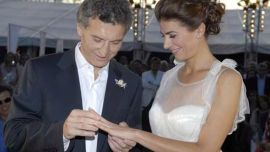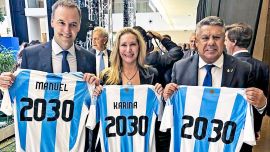Rumours are swirling in Argentina, with new restrictions imposed by Central Bank of the Argentine Republic (BCRA) and fears about the institutions' reserves prompting talk about a possible 'corralito.'
The Central Bank and economists from across the political spectrum quickly came out to deny the runnours and reassure the population. However, many experts admit that the level of reserves is still a worrying factor. According to the Ecolatina consultancy firm, by the end of the year, net reserves (including gold and excluding SDRs – and the coming payment of more than US$1.8 billion to the Fund) will be below US$4 billion.
Ecolatina predicts a complex scenario. Based on a study they conducted, "reserves will most likely end the year below the level of December 2020." Although total reserves amount to US$42 billion, they pointed out that they are made up of a pool of assets that, in part, are not usable liquid currency, and in part have as a counterpart a liability in foreign currency.
In order to be able to calculate the level of Net or Liquid Reserves with certainty, some of the assets that are not immediately available, or that belong to the reserves but not to the Central Bank per se, are subtracted from the gross reserves.
Ecolatina detailed in its report that at the end of 2020, the Central Bank's firepower was at minimum levels. With the tightening of the cepo, pro-market measures and the start of the agricultural liquidation with a commodities rally, the monetary authority found itself in a more comfortable position to manage the foreign exchange market. The large flow of agro-dollars in the second quarter and the postponement of the payment to the Paris Club allowed it to double net reserves between March and July. At the same time, the receipt of funds from the SDR allocation from the International Monetary Fund dissipated any serious deterioration in this vital stock attributable to principal and interest payments to the Fund.
"However, this accumulation slowed down in the second half of the year. With the seasonal retraction of agro-currency supply and the usual exchange rate tensions of electoral periods, in the second half of the year the Central Bank began to lose foreign exchange (a phenomenon mitigated by the intervention in financial dollars)," reads the report.
Aldo Abraham, from the Fundación Libertad y Progreso think-tank, told PERFIL that reserves are not at negative levels, as some colleagues claim. He said that those who say this are doing calculations based on liquid reserves, which are readily available, and subtracting the SDRs granted by the IMF.
"Liquid reserves should be around US$2.5 billion approximately. Meanwhile, the net reserves – which, if they are used, would mean getting rid of the gold held by the Central Bank – would be around US$5.5 billion in foreign currency. It is a question of accounting," he explained.
For the economist, "it is a fact that there is a shortage and that they are playing on the razor's edge." He detailed that if payments to the IMF and the sale of dollars continued into the future, reserves are going to run out at some point. In this sense, he stressed the need to reach an agreement with the Fund as soon as possible, before March, otherwise Argentina would default on its payments.
Abraham also sought to reassure the public that the BCRA's measure rules that commercial banks that were previously allowed to have a percentage of their assets invested in foreign currency must now sell it, putting it into pesos. "It has nothing to do with savings and if people want their money, they will have it," he said.
Former Central Bank governor Martín Redrado said on Tuesday that "there is no reason for a corralito" to take place, because "Argentines' dollars are there." In addition, according to reporting by Noticias Argentinas, he explained that since 2003 there have been very specific regulations which mean that the dollar deposits held by Argentines in the country's banks are fully backed by loans to companies which generate dollars.
Economist Sergio Chouza told PERFIL that reserves have grown in 2021. When asked about the flight of foreign currency in the last two months and the seasonal retraction, he affirmed that "yes, they are at low levels but they have still grown."
Referring to the Ecolatina report (calculating net reserves, which takes into account the next payment to the IMF), the specialist said: "We must be careful with the interpretation of the payment of the last instalments to the [International] Monetary Fund. With respect to September, that has already been made and what would be made in December and February ... is being negotiated is a new programme of disbursements and payments."
In this line, he detailed that among the negotiating points, there could be an injection of dollars into Argentina's economy to compensate for what was previously paid. Commenting on the rumours of a 'corralito encubierto,' Chouza was critical.
According to Redrado, what Argentina "needs, beyond an agreement with the IMF, [is] a programme to stabilise its economy."





















Comments